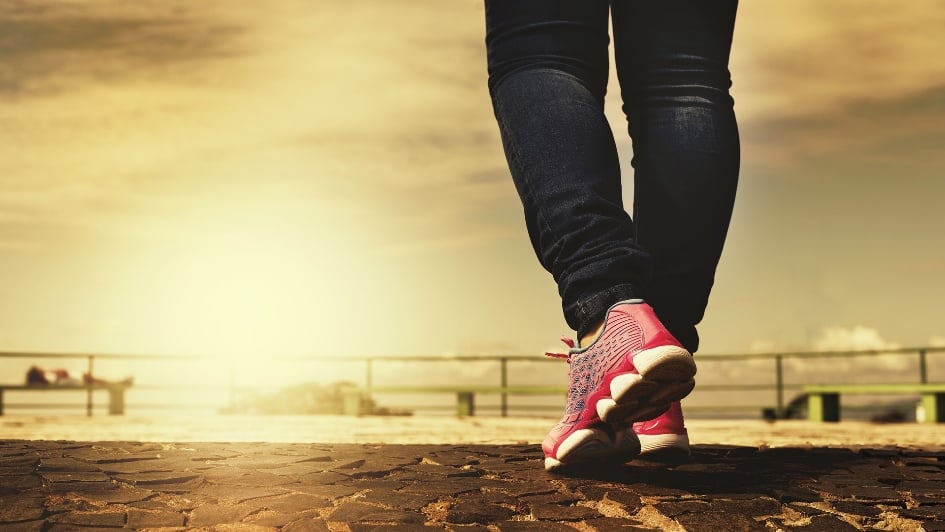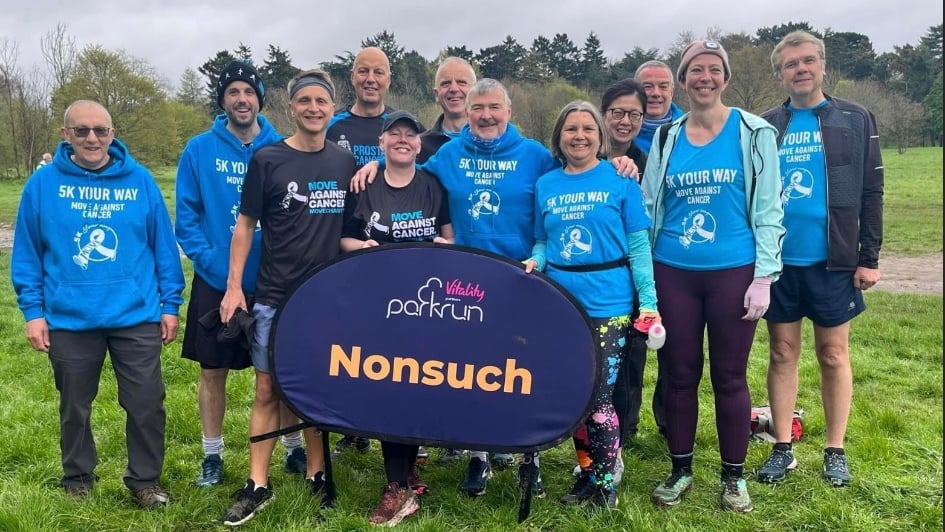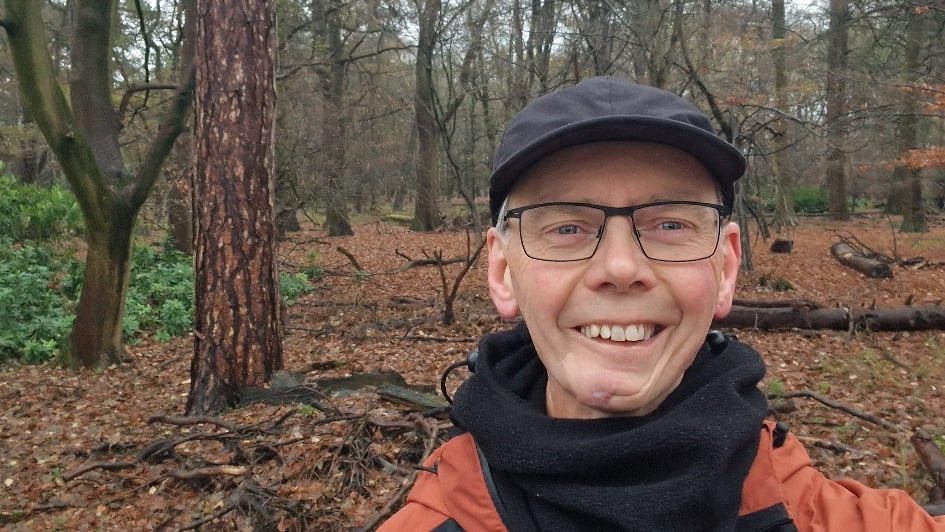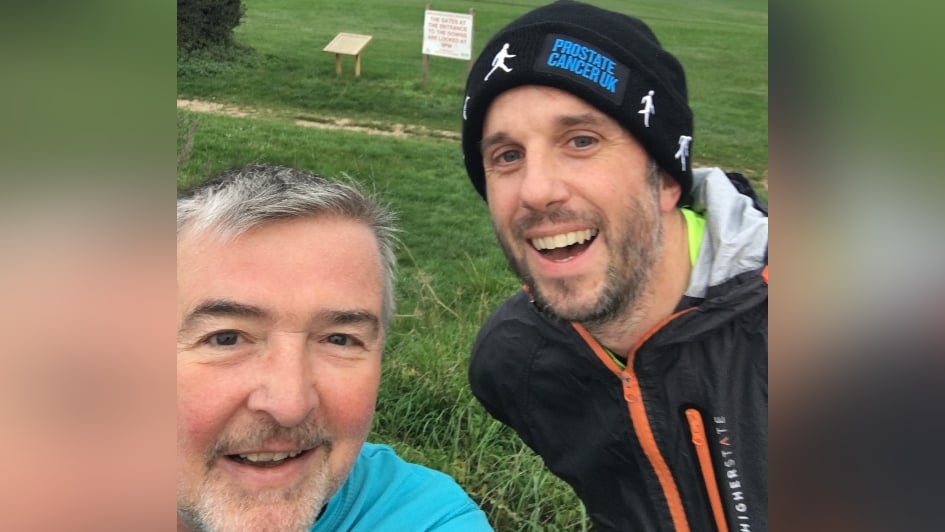
Image: Person walking towards the beach. Credits: Pixabay.
Most people are aware of the benefits of exercise – it has been associated with improvements in overall health for some time. It makes sense that activities that raise your heart rate can have benefits for a person’s heart health but perhaps it’s less obvious that exercise can reduce someone’s risk of cancer.
While the precise biological mechanisms underlying the benefits of exercise against cancer remain largely unknown, scientific evidence supports the association. Further research is needed to develop effective recommendations.
There is evidence that getting enough exercise when you’re young can significantly reduce a person’s risk of cancer in later life. One major study in young men suggests that regular running, fast walking and other aerobic exercise can significantly reduce the risk of nine types of cancer when you get older.
Exercise and cancer risk
Professor Amy Berrington, Leader of the ICR's Clinical Cancer Epidemiology Group, explained how exercise is linked to a reduced risk of cancer:
“There is strong evidence that getting enough physical activity is linked to a lower risk of many types of cancer in both men and women.
“It’s thought that exercise lowers cancer risk in a number of ways, firstly, by helping to lower BMI, but also through the modulation of hormones, inflammation, the immune system, digestion and metabolism.
“For example, exercise can help to control insulin levels, and high insulin levels have been linked to cancer development and progression.’’
According to a recent ICR study, regular physical activity reduces the risk of breast cancer for women before the menopause. The research, funded by Breast Cancer Now, analysed data from 19 international studies, including the Breast Cancer Now Generations Study. It looked at levels of physical activity and cancer diagnoses amongst 547,000 women who had not gone through the menopause.
Their analysis found that even when other breast cancer risk factors and lifestyle behaviours were taken into account, such as a high BMI, family history of breast cancer, smoking and alcohol consumption, the positive effect of exercise was still present.
Dr Michael Jones, Senior Staff Scientist at the ICR who worked on the study, said:
“This new research provides us with solid evidence that greater leisure time physical activity is associated with lower risk of breast cancer in younger women. It's important to remember that breast cancer risk is influenced by several factors – including genetics, lifestyle and environment, and many of these are out of our control. Our research adds to the evidence that engagement in higher levels of leisure-time physical activity may lead to reduced premenopausal breast cancer risk.’’
At the ICR, we have many sports events and challenges that people can join to help support our world-leading cancer research. Whether it’s walking, running, trekking or cycling, you’ll be helping us continue our work so that one day we can defeat cancer.
Exercise benefits cancer patients during diagnosis and treatment
But what about once someone has had a cancer diagnosis? Can exercise – and keeping physically active – still be beneficial?
Patient advocate Tony Collier certainly thinks so. Tony was diagnosed with advanced prostate cancer in May 2017, aged 60, while he was training for one of the world's toughest ultra-marathons.
He is currently taking abiraterone – a drug discovered at the ICR. He says the drug gave him his life back – helping him to avoid the more debilitating side effects of chemotherapy and continue running. Earlier this year, he ran 5km at Lytham as part of our ‘Finish Cancer’ campaign to raise funds and awareness for our vital research.
Tony spoke with us about his passion for running and how it’s been helping him during cancer diagnosis and treatment.
‘Running helped me reduce weight and become part of a social group’
“I started running at the age of 45. I was borderline clinically obese and it was quite clear that I wasn't doing enough exercise.
“I changed my diet, cut down alcohol. The gym where I played social squash had an informal running club and I asked if I could join them – it was basically a group of 10 to 12 friends who ran together on Tuesday and Thursday evenings.
“I thought it would be fun but I was not sure I could keep up with them. However, I started going on few runs with them, then joined races and eventually became an affiliated running club member.’’

Image: Group of runners from '5k Your Way - MOVE charity', doing a Parkrun, including Tony Collier and Dr Adam Sharp. Credits: Tony Collier.
‘The mental benefits of exercise were tremendous’
“Exercise certainly helped a big deal mentally with the diagnosis and with living with the treatment.
“I’d take my cancer meds and I’d feel dreadful in the morning – all I’d want to do is go and lie on the sofa. But actually, I forced myself to put my running shoes on and go out for a run, even if it was only around the block and I would feel a million times better when I would get back.
“The veil of fatigue lifted. Mentally I feel better. The endorphin rush is great, and I feel healthier and stronger.
“I'm aware that at some point my cancer will progress and it will probably stop me from running. But to make sure I could carry on being involved, I qualified as a running coach so I can train people on how to run. Last year, I ran two Couch to 5K classes with more than 60 people in total and got them literally from being non-runners through to doing 5K in 10 weeks – it’s been extremely rewarding.’’
Exercise means something different for each person
“I’ve done the London Marathon and a 100 km ultramarathon since I was diagnosed. For me, exercise is running, but for other people exercise is something completely different. It might be going out on a bike, or to the gym, or swimming. For others it might be going for a walk. The most important thing is to do something and not nothing – to do what you can to be active. It’s essential for one’s wellbeing!
“I'm really passionate about the MOVE charity which I fundraised for last year. This community-based initiative supports those living with and beyond cancer, their families and friends, and those working in cancer services to walk, jog, run, or simply cheer or volunteer.
“We say to people: if you can’t run, jog. If you can’t jog, walk. If you can’t walk, just turn up and volunteer, stand and cheer, but do come for a coffee and join the support group.’’
Prehabilitation for cancer patients
“I'm a patient representative for Prehab4Cancer in Greater Manchester, which is the world-leading prehabilitation programme for cancer patients. We encourage people – many of them with sedentary lifestyles – to do very simple things like arm curls, arm raises or other types of exercise that can help them prepare for surgery or treatment, and hopefully lead to a better recovery afterwards.
“We had one lady who went through the programme, and she couldn't do a sit-to-stand without using her hands at the beginning. After three or four weeks of the programme she could do 14 sit-to-stands. That's really empowering! People are getting fitter for treatment, getting fitter for surgery, and are out of hospital more quickly. Also, we know that the programme has saved one and a half NHS bed days per patient, so it's saved about £1,000 per patient.”
Keeping fit to support cancer treatment outcomes
John Dabell, an immunotherapy patient living with advanced head and neck cancer, shares his commitment to a healthy lifestyle and regular exercise to support his treatment:
“One of the reasons why I think the cancer treatment is working so well for me is because I put in a lot of effort into keeping fit and eating well.
“I walk around 5 miles a day, including on treatment day. No one has told me to walk miles every day, but I make it my mission to get out and get moving to enhance my survivorship.
“I call it 'training for treatment' and I commit to a daily walking regime with the intention of enhancing and boosting immunotherapy. Training for treatment never stops and whatever the weather or whatever I'm feeling like, I make sure I get out there, put in the hard yards and then I know I'm 'match ready'.’’
John has a big following on Twitter where he openly shares his ongoing journey with cancer. Through regular posts about his invigorating walks and outdoor activities, he not only inspires his community with self-motivation but also spreads positivity amidst life's challenges.

Image: John Dabell in the woods. Credits: John Dabell (source: Twitter).
Healthcare professionals recognise the benefits of exercise for patients
Tony Collier met Dr Adam Sharp, Leader of the Transitional Therapeutics Group at the ICR and a Consultant Medical Oncologist at The Royal Marsden NHS Foundation Trust, on Twitter during the pandemic and they became occasional running buddies.
Tony regularly meets with Adam's team at the ICR to hear about their research and provide a patient's perspective on their work.
Dr Sharp is an advocate of exercise and supported our recent ‘Finish Cancer’ campaign by running 9 km across Golden Gardens Park in Seattle, US. He said:
“Exercise is vital for our physical and mental wellbeing. It is often recommended as prevention and control for various chronic diseases, including cancer.
“Running is one of those physical activities which has gained a lot of popularity in the cancer setting with an acknowledged beneficial impact.
“I enjoy running myself and been taken part in many races so far. It was fantastic to be part of the ICR’s recent ‘Finish Cancer’ campaign and imprint the words ‘FINISH’ and ‘CANCER’ into the coastline. It is very inspiring for people to come together and run for such a good cause.’’

Image: Tony Collier and Dr Adam Sharp running together in Epsom Downs. Credits: Tony Collier.
According to international health guidelines, it is safe and also recommended to be active during cancer treatment and after.
More and more healthcare professionals recognise that exercise should be part of your treatment pathway. One of them is Liz O'Riordan, a retired cancer surgeon who was diagnosed herself with breast cancer. She was trained in oncoplastic breast surgery at The Royal Marsden and has raised awareness of breast cancer by openly discussing on her social media about her personal experiences in being diagnosed and treated for this disease:
“Cancer fatigue is real and it’s hit me like a ton of bricks. The real cure for cancer-related fatigue is exercise, both aerobic and resistance-based. There are now piles of trial data proving that it works and it does make you feel better and stronger.
“If you ever feel exhausted, trust me the best thing you could do for yourself is get off the couch and start moving.’’